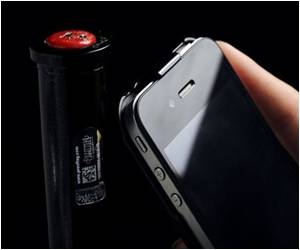
South Korea's pride in its high-tech prowess, from ultra-fast broadband speeds to Samsung's cutting-edge smartphones, is now tinged by anxiety over digital addiction -- with even pre-school children showing symptoms of IT obsession.
The country has long promoted Internet technology as a key driver of growth, and the capital Seoul is often referred to as the "most wired" city on the planet.
About 70 percent of South Korea's 50 million people have smartphones -- the highest penetration rate in the world, according to the market research firm eMarket.
But the country's fixation with everything digital has parents worried about its impact on young -- sometimes very young -- children. The concern is shared around the world in other advanced economies, but the South Korean government has gone furthest in its response.
"We felt an urgent need to make a sweeping effort to tackle the growing danger of online addiction... especially given the popularity of smart devices," the science ministry said when it announced a policy package on June 13.
Advertisement
According to government data, more than 80 percent of South Koreans aged 12 to 19 owned smartphones in 2012, double the 2011 figure.
Advertisement
An annual government survey estimated that nearly 20 percent of teenagers were "addicted" to smartphones.
Addiction was defined by a number of criteria, including anxiety and depression when separated from a smartphone, a repeated failure to cut back on usage time, and feeling happier using smartphones than being with family or friends.
The problem is not exclusive to teenagers, and the government's education policy targets primary schools and even pre-schoolers.
"Many young mothers nowadays have their babies play with smartphones for hours to have some peace at home, which I think is really dangerous," Lee Jung-Hun, a psychiatrist at the Catholic University of Daegu, told AFP.
"The younger you are, the easier it is to become dependent," he said.
South Korea is painfully aware of the tragic results that can flow from Internet dependence.
Police in 2010 arrested a couple who let their three-month-old starve to death while they obsessively played an online game -- about raising a virtual baby.
A woman was arrested last year after giving birth in the toilet of an Internet cafe, where she had been playing for days, and abandoning the new-born.
Former schoolteacher Kwon Jang-Hee, who heads a civic group campaigning against digital addiction, has been criss-crossing the country since 2005 lecturing children and parents on the hazards of a tech-obsessed lifestyle.
"Our biggest focus these days is smartphones," he said, noting that parents could exercise far less control over their children's use of mobile devices compared to PCs at home.
Kwon said he had experienced extreme cases where children had threatened parents with violence or self-harm when their smartphones were confiscated.
Parental awareness needs to "start early", said Kwon, who warned against using smartphones to pacify crying babies and said purchasing devices for children should be deferred as long as possible.
Housewife Park Sung-Hee, who attended a recent "smartphone discipline" boot camp organised by Kwon in Seoul, said she was desperate to get her two teenage sons to cut down on their smartphone usage.
"When I check up on them at night, I can see the screens flickering under their sheets," Park said.
"And it's not just kids. It's adults as well. They're not able to communicate properly or enjoy other things in life," she added.
In her recent presentation to the 10-year-olds at a school near Seoul, Kim Nam-Hee, a member of Kwon's civic group, played on the ultra-competitive nature of South Korea's education system, warning that students obsessed with gadgets may grow up to be "losers".
Kim highlighted the Waldorf school network in the United States which operates a strict no-computer policy and has a branch in California's Silicon Valley that is a popular choice with senior employees of tech giants such as Yahoo and Google.
"While you become mindless slaves of smartphones and apps, the American elite behind these devices aren't giving them to their own kids," Kim warned.
Excessive smartphone usage, she argued, would sap the very creativity that lay behind the technological advances that the smartphone represented.
"If you use smartphones like the iPhone too much without using your own brain, you will eventually lose the ability and brain power to create something as great and innovative as the iPhone," Kim said.
"Isn't that ironic?"
Han Doug-Hyun, a psychiatrist who treats patients for "Internet addiction" at Chung-Ang University Hospital in Seoul, said parents often started to identify a problem when their children were around 13 years old.
While sympathetic to parental concerns, Han cautioned against over-stating the seriousness of the problem and of demonising technology.
"I don't believe humanity will vanish because nobody in the future will be talking to anybody else because of IT devices," Han told AFP.
"But I do think that the focus of people's online obsession will keep changing with new gadgets continually replacing the old ones," he added.
Source-AFP












